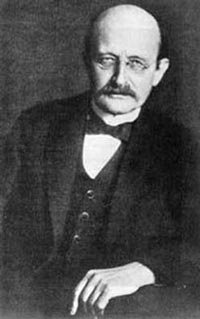
| Born: Apr 23, 1858 in Kiel, Duchy of Holstein |
| Died: Oct 4, 1947 (at age 89) in Gottingen, Lower Saxony, Germany |
| Nationality: German |
| Famous For: Planck constant, Planck postulate and Planck’s law of black body radiation |
| Awards: Nobel Prize in Physics (1918) and Goethe Prize (1945) |
Max Planck was a famous theoretical physicist who was born in 1858, in Kiel, Germany. He originated the quantum theory and it completely changed human understanding of not only atomic processes, but also subatomic processes. In 1918, he was awarded a Nobel Prize in Physics.
Early Years and Family
Planck’s father was a professor at the University of Kiel, and later at the University of Göttingen. He was from a very traditional, intellectual family. His paternal grandfather and great-grandfather were theology professors. Planck studied at the Universities of Berlin and Munich. His teachers included Helmholtz and Kirchhoff, and he completed his doctorate of philosophy in 1879. The physicist married Marie Merck in 1887 and they had four children. After Marie died in 1909, he married Marga von Hösslin, Marie’s cousin.
Career
In Munich, he was Privatdozent from 1880 to 1885, and then at Kiel, he was an associate professor of theoretical physics, until 1889. He then succeeded Kirchhoff as professor at the Berlin University, and he remained there until he retired in 1926. Soon after, he became the president of the Kaiser Wilhelm Society, and he held this position until 1937.
His earliest work was on thermodynamics, a pursuit he acquired when he studied under Kirchhoff. He published several papers on entropy, thermoelectricity and also on the dilute solutions theory. He was also interested in radiation processes and believed they should be regarded as electromagnetic. After these studies he started working on the problems of energy distribution. Planck concluded that there was a relationship between the frequency of radiation and energy. In 1900, he published his conclusions about the relationship which was founded on the revolutionary idea that energy that was released by a resonator would only take on quanta, or discrete values. This was his most important work and it marked an huge milestone in physics history. The significance of this finding had far-reaching effects on physics, but it was not highly valued at first. The data for its validity progressively became overwhelming because its application took into account many inconsistencies between recognized phenomena and classical theory.
His quantum theory work was produced in the journal, Annalen der Physik. Planck’s work was published in two books which include the Thermodynamik and the Theorie der Wärmestrahlung. In 1926, Planck was elected to the Royal Society’s Foreign Membership. In 1928, he was given a medal from the Royal Society’s Copley.
Later Years and Death
He faced a very troubling time and tragic period when the Nazi government was in power. Planck believed it was his duty to stay in Germany but he was very opposed to a number of the government’s policies, in particular their policies towards the Jews. During the last weeks of World War II his home was bombed and completely destroyed.
He also suffered a personal loss when his son, Erwin, was executed for his participation in the failed assassination attempt of Hitler in July, 1944. In October of 1947, Planck died in Göttingen. He was highly respected by his colleagues for the importance of his valuable discoveries and also for his many personal qualities.